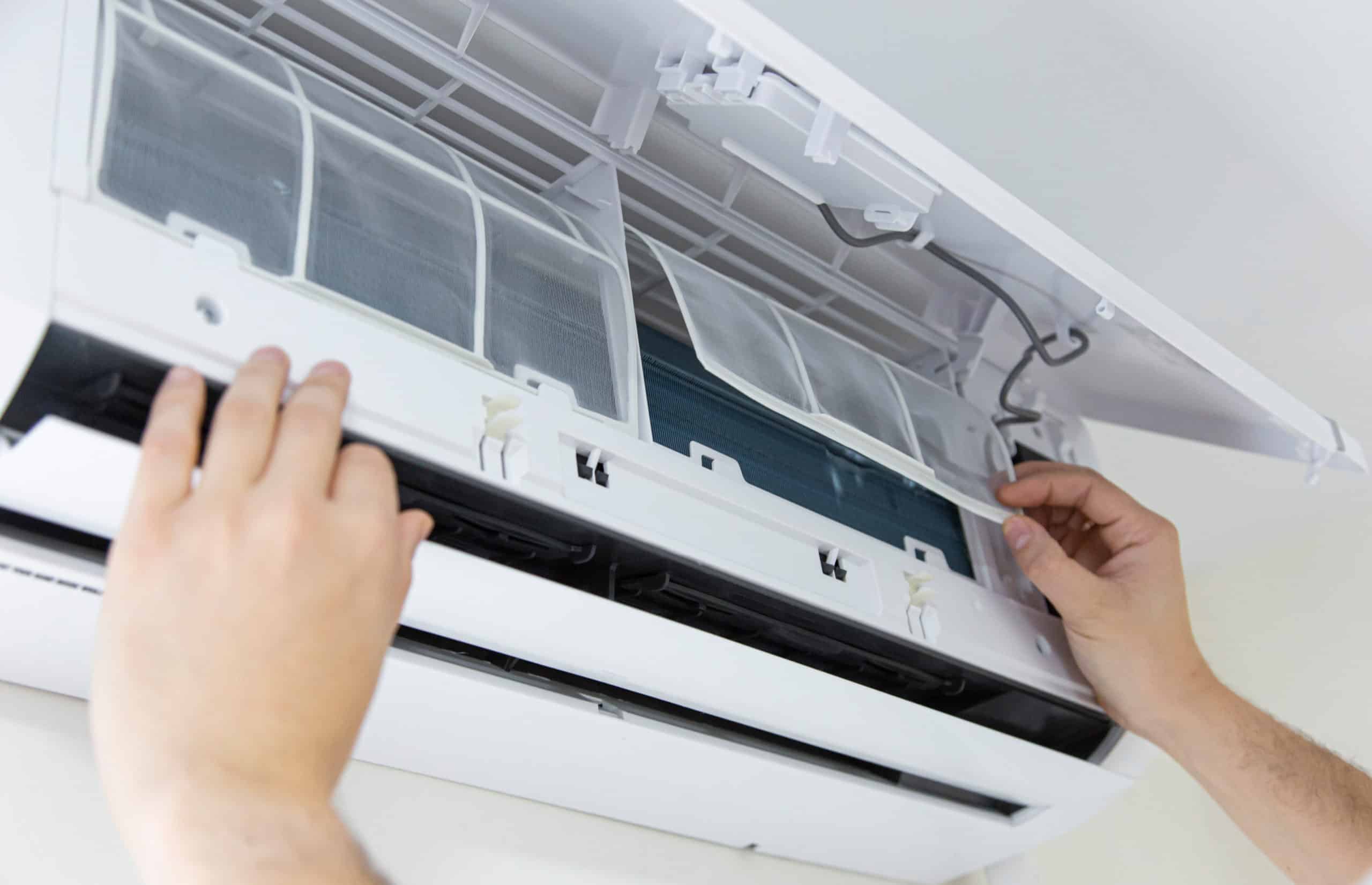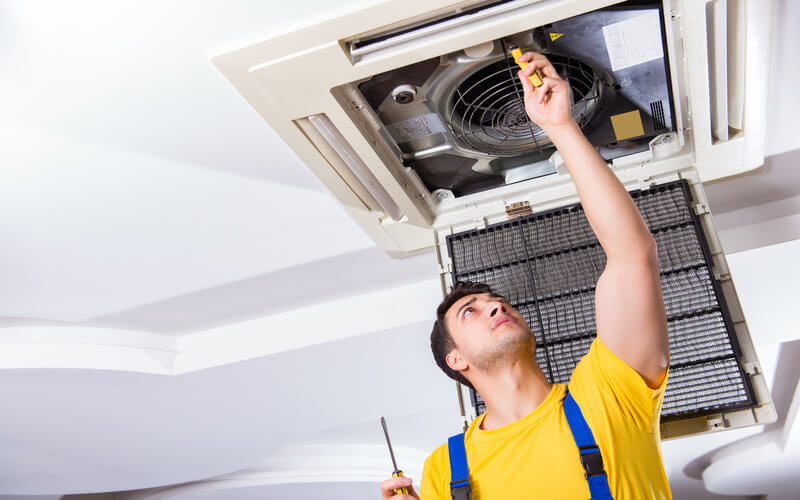Ac Repair Near Me - Questions
Air Conditioner Repair Near Me: Expert Cooling System Remediation Guarantees Your Home Stays Comfortable All Year Round
Kinds Of Air Conditioner Systems
When dealing with air conditioner repair, understanding the type of air conditioning system you're handling can save time, money, and irritation. Ever wondered why some units cool a space quicker than others? Or why specific systems seem to break down more regularly? Let's peel back the layers.
Central Air
Not known Factual Statements About Ac Repair
Picture a cool breeze streaming through an entire home, whispering convenience into every corner. Central air conditioning systems do exactly that. click here They use a network of ducts to disperse cooled air, relying on a compressor and condenser outside, paired with an evaporator coil inside. However when this complex monster falters, pinpointing the concern can be like discovering a needle in a haystack.
Split Systems

Split systems are a popular choice for numerous homes-- part indoor system, part outside compressor. They offer versatility and effectiveness, but their dual nature implies repair can include either element. Have you ever heard a weird sound outside your home just to discover the indoor system isn't cooling? That's a timeless indication of a split system glitch.
The Only Guide to Ac Air Conditioner Repair
Window Units
These compact warriors fight summer heat by fitting snugly into a window frame. They combine all parts into a single box. Their simplicity frequently indicates fewer repair headaches, however ignoring filters or permitting debris accumulation can cause reduced performance or breakdowns.
Ductless Mini-Splits
Some Ideas on Ac Air Conditioner Repair You Should Know
Ductless systems bypass ductwork entirely, making them ideal for homes without existing ventilation. They're peaceful, effective, and surprisingly durable. When repair work are required, specialists need to be adept at dealing with refrigerant lines and electrical connections-- no little accomplishment.
Quick Recommendation Table
| Type | Key Includes | Typical Repair Issues |
|---|---|---|
| Central Air | Ductwork, whole-house cooling | Duct leakages, compressor failure |
| Split System | Indoor & & outside units | Refrigerant leaks, fan motor concerns |
| Window Unit | All-in-one, simple setup | Dirty filters, electrical faults |
| Ductless Mini-Split | No ducts, zoned cooling | Line leakages, sensing unit malfunctions |
Getting The Repair Air Conditioner Near Me To Work
Deciphering one of the most Regular A/c Issues
Have you ever wondered why your air conditioning system all of a sudden stops cooling throughout a sweltering afternoon? One common offender is a filthy or stopped up air filter. This sly villain restricts airflow, forcing your system to work overtime, which not just reduces effectiveness however can also result in early breakdowns. Picture trying to breathe through a scarf soaked in dust-- it's exhausting!
Another regular hiccup is refrigerant leakages. These undetectable leaks do not simply decrease cooling power but can likewise harm the compressor, the heart of your air conditioner unit. How frequently do you inspect for uncommon hissing noises or ice development on the coils? Catching these indications early can conserve you from expensive repair work down the line.
Beyond the Basics: Lesser-Known Issues
The Best Strategy To Use For Ac Air Conditioner Repair
Sometimes, the thermostat itself is the mischief-maker. Miscalibrated or malfunctioning thermostats send combined signals, causing the a/c to cycle unpredictably. Ever knowledgeable your a/c switching on and off in quick succession? That's called brief biking, a sly performance drainer that can wear components much faster than you 'd anticipate.
Electrical problems, such as used circuitry or a malfunctioning capacitor, might hide underneath the surface. Fix Air Conditioner. These often manifest as air conditioning systems failing to begin or unexpectedly shutting down. A professional eye understands to check these elements with accuracy tools, something a casual glance won't reveal
Specialist Tips for Diagnosing Common Air Conditioner Problems
Some Known Factual Statements About Air Conditioning Repair
- Examine and replace air filters routinely-- every 1 to 3 months depending on usage and environment.
- Listen for uncommon sounds like rattling or buzzing that could indicate loose parts or electrical faults.
- Inspect the outdoor unit for particles or obstructions that restrain airflow and trigger getting too hot.
- Try to find frost accumulation on evaporator coils, a tip towards refrigerant issues or airflow restrictions.
- Evaluate the thermostat settings and recalibrate if the temperature readings feel off.
Quick Reference Table: Symptoms & & Probable Causes

| Symptom | Probable Cause | Professional Suggestion |
|---|---|---|
| Warm air blowing | Low refrigerant or unclean coils | Tidy coils and look for leakages instantly |
| Short cycling | Thermostat problems or extra-large system | Adjust thermostat settings and seek advice from sizing standards |
| System won't begin | Electrical faults or capacitor failure | Test electrical wiring and replace capacitors as required |
| Water leakage | Blocked drain line or frozen evaporator | Clear drain lines and examine for coil icing |
DIY A/c Upkeep Tips
Our Ac Air Conditioner Repair Ideas
Ever noticed your air conditioner sputtering like an old engine on a hot summer season day? Overlooking subtle signs frequently implies more than just a sweaty afternoon-- it's a start to unexpected air conditioner repair work expenses. What if you could catch those whispers before they turn into wails? Routine do it yourself upkeep can be your first line of defense.
Easy Steps to Keep Your Air Conditioner Running Smoothly
6 Simple Techniques For Ac Repair Near Me
- Tidy or Replace Filters: A stopped up filter is like trying to breathe through a scarf. Every 1-3 months, inspect and switch out your filters. It improves air flow and performance, avoiding compressor strain.
- Examine the Condenser Coils: Dust and debris act as undetectable blankets smothering your unit's cooling power. Carefully brush or vacuum the coils, however prevent harsh chemicals that may deteriorate the metal.
- Examine the Drain Line: When was the last time you glanced at your drain pan? A clogged drain can cause water leaks and foster mold development. Flushing it with a vinegar option month-to-month keeps the circulation clear.
- Seal and Insulate: Are your ductworks whispering leaks? Sealing gaps with mastic or foil tape boosts effectiveness and cuts down on unequal cooling.
Pro Tips Beyond the Basics
- Procedure your unit's voltage to capture subtle electrical wear before it triggers huge problems.
- Listen for uncommon hums or rattles-- these acoustic breadcrumbs typically indicate loose parts or failing motors.
- Keep outdoor units shaded but ensure a minimum of 2 feet of clearance around them for optimal air flow.
Ask yourself: Are you hearing your a/c's peaceful SOS or just awaiting it to shout? Taking time for DO IT YOURSELF AC maintenance changes reactive repair into proactive care, saving sweat, tension, and yes, money.
4 Easy Facts About Ac Fixing Described
Why Proficiency in Air Conditioning Repair Work Matters
Picture this: your air conditioning unit sputters and groans during a scorching afternoon, leaving you sweltering inside. Would you trust an amateur fumbling with fragile elements, or would you seek the reassurance of a professional AC professional!.?.!? The intricacies of contemporary a/c systems require precision and experience. A minor miscalculation can intensify a small breakdown into a pricey disaster.
Ac Air Conditioner Repair Can Be Fun For Anyone
Hidden Complexities Behind the Cool Breeze
Many ignore the layers concealed below the streamlined outside of an air conditioning unit - Fix Air Conditioner. From refrigerant leakages that calmly drain effectiveness to malfunctioning thermostats that misread temperature levels, these problems require more than a standard toolkit. Specialists possess an eager eye for diagnosing problems that balance property owners ignore
Necessary Tips for Picking the Right Technician
The 3-Minute Rule for Air Conditioning Repair
- Accreditation and Training: Validate qualifications; a technician trained in the current heating and cooling innovations is indispensable.
- Experience with Specific Systems: Not all a/c systems are created equal; discover someone acquainted with your model's quirks.
- Diagnostic Approach: Proficient professionals use sophisticated tools-- like electronic leak detectors and thermal imaging-- to determine concealed faults.
What to Anticipate from a Pro's Diagnostic Process
| Step | Function | Professional Insight |
|---|---|---|
| Visual Assessment | Determine obvious wear or damage | Try to find rust or uncommon noises-- an indicator often ignored |
| Pressure Checking | Identify refrigerant leakages | Subtle pressure drops can hint at micro leakages undetectable to the naked eye |
| Electrical Testing | Ensure circuit integrity | Loose connections can imitate extreme mechanical failures |
An Unbiased View of Air Conditioning Repair Near Me
Why Do It Yourself Frequently Falls Short
Tempting as it is to tinker with your AC unit, DIY repairs often miss out on the source. Topping off refrigerant may briefly cool your space but ignores leaks that get worse over time. Professional specialists do not just patch signs; they hound the underlying mechanical and electrical faults that sap performance.
Not known Details About Repair Air Conditioner Near Me
Questions to Ask Before Working with
- What diagnostic tools do you utilize to identify problems?
- Can you discuss the repair work process and expected results?
- Are you familiar with the refrigerants compatible with my unit?
- Do you follow security procedures for handling electrical components?